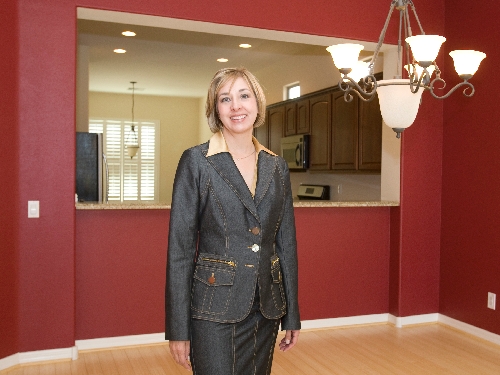Short sales skyrocketing

Short sales are increasingly becoming the alternative to foreclosures in Southern Nevada, which is still seen as "ground zero" in the nation’s housing crisis.
The number of short-sale homes now in escrow is nearly four times that of real estate-owned homes, though REO closings are still twice the amount of short sales, Nevada Title Co. reported in its April market summary.
The report showed 8,586 short sales, or homes being sold for less than the mortgage balance, compared with 2,234 real estate-owned, or bank-owned, homes in escrow. REO closings totaled 1,419 in March, compared with 690 short-sale closings. March numbers are estimated and subject to revision.
Roughly half the homes available on the Multiple Listing Service are short sales, while 20 percent to 25 percent of the inventory is real estate-owned, Greater Las Vegas Association of Realtors President Rick Shelton said.
The hang-up is getting short sales approved by the lender, which can take several months. REOs close escrow in an average of 128 days from entering the market and only 10 percent fall out of escrow, whereas short sales close in 243 days and two-thirds fall out, Nevada Title reported.
"These factors continue to support anecdotal reports of an inefficient and problematic closing process," the report stated. "Prices are weak with that trend likely to continue."
Short-sale prices continue to inch downward toward REO pricing instead of upward toward normal transactions, said Frank Nason of Residential Resources in Las Vegas. He reported a median real estate-owned home price of $126,000 in March, $11,000 under the overall market median.
Listing offices are starting to manipulate prices along the lines of foreclosures in the past year, which is to list properties well below current market value to get multiple offers and submit a viable offer to the lender, Nason said.
Some local housing analysts believe short sales could outnumber foreclosures by the end of the year, or at least come close. The trend line for foreclosures dropped from 80 percent of total home sales to 50 percent in the past 15 months, while short sales have gone from about 8 percent to 25 percent.
"This trend toward short sales may prevent the tsunami of foreclosures," said Larry Murphy, president of SalesTraq, a Las Vegas housing research firm. "Short sales are the most viable alternative. We’ve got rent for deeds, deeds in lieu of foreclosure, HAMP, HAFA — throw it all against the wall and I don’t think anything is sticking except short sales. It’s the most logical way to grind through this."
Short-sale closings rose to 905 in March, a 42 percent increase from February and 323 percent jump from the same month a year ago, Robyn Yates of Windermere Realty said. Nearly 10,000 out of 12,445 contingent home closings, or 80 percent, are short sales, she said.
"They’re getting easier to close," Yates said. "It’s great for us. Agents who didn’t get REO accounts have suffered financially. Now they’re able to get on the bandwagon and they’re able to do volume again in their business."
The government unveiled two new programs — Home Affordable Foreclosure Alternatives and Second Lien Modification — earlier this month to help facilitate short sales, part of the $75 billion Home Affordable Modification Program announced by President Barack Obama last year.
HAFA allows qualified sellers to receive $3,000 in relocation fees, while banks and lenders are paid a $1,500 fee for their services. More importantly, it stops the lender from pursuing a deficiency judgment against the homeowner.
Lenders are processing short-sale transactions more quickly and the percentage of short sales is likely to grow going forward even if the new HAFA guidelines have no material effect, Nason said.
Short sales are a sensible solution for homeowners who face inevitable foreclosure and eviction, said Eli Tene, president of I Short Sale, a Los Angeles-based short-sale and loss mitigation advisory firm.
"We need to think about how to make the economy and real estate healthier. The mortgage brokers, the banks, federal government and the people buying were the ones that led us down this road and we need to work together to get out of it and restabilize the market," Tene said.
"What makes Las Vegas different is it manages to attract investors and investors look for a certain price. These (federal) programs make it hard to satisfy investors. Investors don’t agree to a price and it goes to REO," he said.
Foreclosure filings, including mortgage default notices, home auctions and repossessions, reached 315,716 in January, Irvine, Calif.-based RealtyTrac reported. That’s down nearly 10 percent from December, but up 15 percent from the year-earlier month. One in every 409 U.S. housing units received a foreclosure filing in January.
Nevada has a 90-day mortgage delinquency rate of 19 percent, significantly higher than the nationwide average of 8.7 percent, the Mortgage Bankers Association reports. Eight of the nation’s top 50 foreclosure ZIP codes are in Southern Nevada.
Las Vegas Realtor Devin Reiss said most homeowners don’t want to give their homes back to the bank, but sometimes the bank forces their hands.
"Can they continue to stay in their property? Can they afford to make the payments? If so, great. If I can’t, I’d like to know there’s an alternative other than just letting it go," Reiss said.
Contact reporter Hubble Smith at hsmith@reviewjournal.com or 702-383-0491.